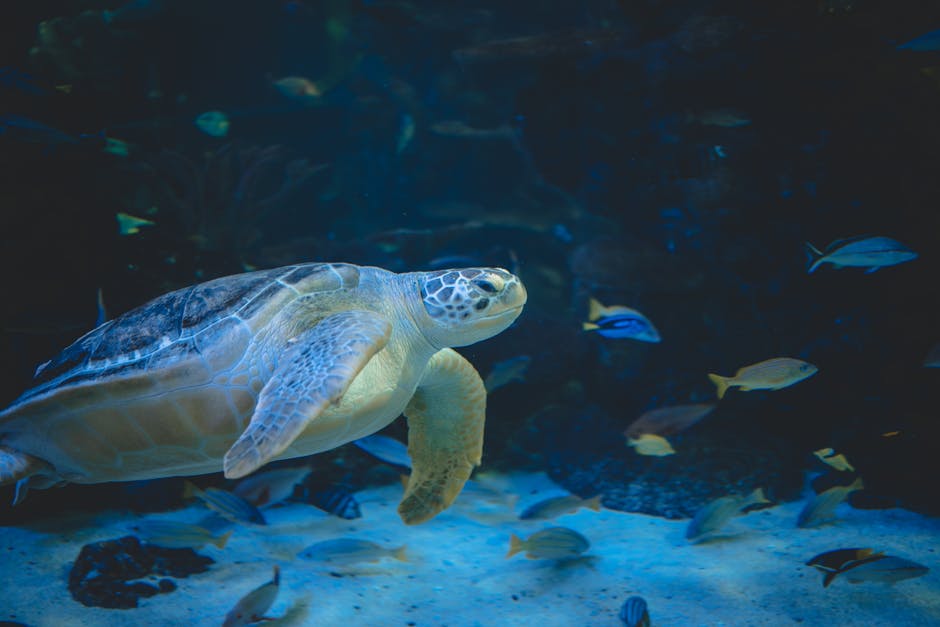The global ocean, a vast and vital ecosystem, faces unprecedented threats. From plastic pollution to climate change, the pressures on marine life and ocean health are escalating. Consequently, a critical examination of future ocean conservation strategies is paramount. This exploration will delve into the evolving challenges and innovative approaches necessary for securing the future of our oceans.
A Changing Landscape: Understanding the Current State
The modern era presents a complex cocktail of factors impacting ocean health. Overfishing continues to decimate fish populations, disrupting marine food webs and impacting biodiversity. Habitat destruction, primarily through coastal development and destructive fishing practices, further exacerbates this issue, leading to the loss of critical breeding grounds and nurseries. Pollution, a pervasive issue, includes not only plastic debris but also agricultural runoff, industrial waste, and noise pollution, all negatively affecting marine organisms. Compounding these problems, climate change is altering ocean temperatures, acidifying the water, and intensifying extreme weather events, leading to coral bleaching, sea level rise, and disruptions in marine ecosystems. These interconnected crises necessitate a holistic approach to conservation.
Forecasting the Future: Key Considerations for Ocean Conservation
A robust strategy for the future of ocean conservation must address the multitude of threats, integrating scientific understanding with practical solutions. Prioritizing marine protected areas (MPAs) is a crucial component. Effective MPAs should transcend national boundaries to safeguard critical migratory routes and large-scale ecosystems. Furthermore, incorporating local communities into conservation efforts is essential. Sustainable fisheries management, empowering local knowledge and participation, and economic incentives for conservation are pivotal. Innovative technologies will also play a substantial role. Monitoring technologies, such as remote sensing and autonomous underwater vehicles, can provide crucial data on species distribution, habitat health, and pollution levels, enabling proactive interventions. Improved modelling techniques allow for predictions of the impacts of climate change on specific regions and species, enabling the development of more targeted conservation strategies.
Emerging Approaches: Addressing the Challenges Head-on
Marine sanctuaries and reserves, acting as havens for marine life, will likely become more crucial in the future. Protecting these crucial ecosystems may involve sophisticated and innovative solutions. For example, utilising marine spatial planning to harmoniously integrate conservation goals with human activities on the coasts and in the ocean. This strategy, incorporating scientific modelling and community participation, can optimize the use of ocean resources while safeguarding marine biodiversity.
Climate change mitigation is another critical component. Addressing the root cause is paramount to slowing the rate of ocean acidification, rising temperatures, and extreme weather events. Promoting sustainable energy sources and reducing greenhouse gas emissions are essential steps toward a more sustainable future for both land and sea. Furthermore, the concept of ‘blue carbon’ the capacity of coastal ecosystems like mangroves and seagrass beds to sequester carbon warrants further exploration. Sustainable coastal management practices that enhance these ecosystems’ carbon sequestration capabilities represent a significant opportunity to mitigate climate change.
A Role for Stakeholders: Collaboration and Engagement
Collaboration among governments, researchers, NGOs, and the private sector is critical to effective ocean conservation. International agreements and treaties will likely play an increasing role in harmonising conservation efforts across geographical boundaries. Incentivizing sustainable practices and educating the public regarding ocean conservation are vital components. Public awareness campaigns, coupled with educational programs, can motivate individual actions and contribute to broader societal change. The potential of “citizen science” programs, where the public contributes to data collection and monitoring, is also substantial.
Addressing the Gaps in Knowledge: Research Priorities
Continual research into marine ecosystems and their responses to environmental pressures is fundamental. Understanding the complex interactions within marine food webs, the effects of pollution on marine organisms, and the impacts of climate change on specific species are crucial for informed conservation action. Developing early warning systems for potentially devastating events, such as coral bleaching or large-scale fish migrations, will enable more timely interventions. The study of ocean currents and their role in the distribution and migration of marine species is also an important area for research, contributing to the identification of critical habitats and migratory corridors for conservation efforts.
Economic Considerations: Integrating Conservation with Sustainability
The economic value of healthy oceans, encompassing fisheries, tourism, and coastal livelihoods, must be understood and integrated into conservation strategies. Sustainable fisheries management, employing techniques like catch quotas and marine protected areas, can safeguard long-term yields and livelihoods. Sustainable tourism initiatives that minimize environmental impact and support local communities are crucial. Creating a balanced framework that acknowledges economic benefits while prioritizing environmental protection is essential.
Conclusion: A Path Forward
The future of ocean conservation rests on a multi-pronged approach incorporating scientific innovation, collaborative partnerships, and public awareness. By prioritizing sustainable practices, protecting crucial habitats, mitigating climate change, and fostering international cooperation, we can hope to safeguard the invaluable ocean ecosystems for future generations. Recognizing the interconnectedness of marine environments with human well-being is critical. Protecting our oceans isn’t merely an environmental imperative; it is essential for economic sustainability and the overall health of our planet.
